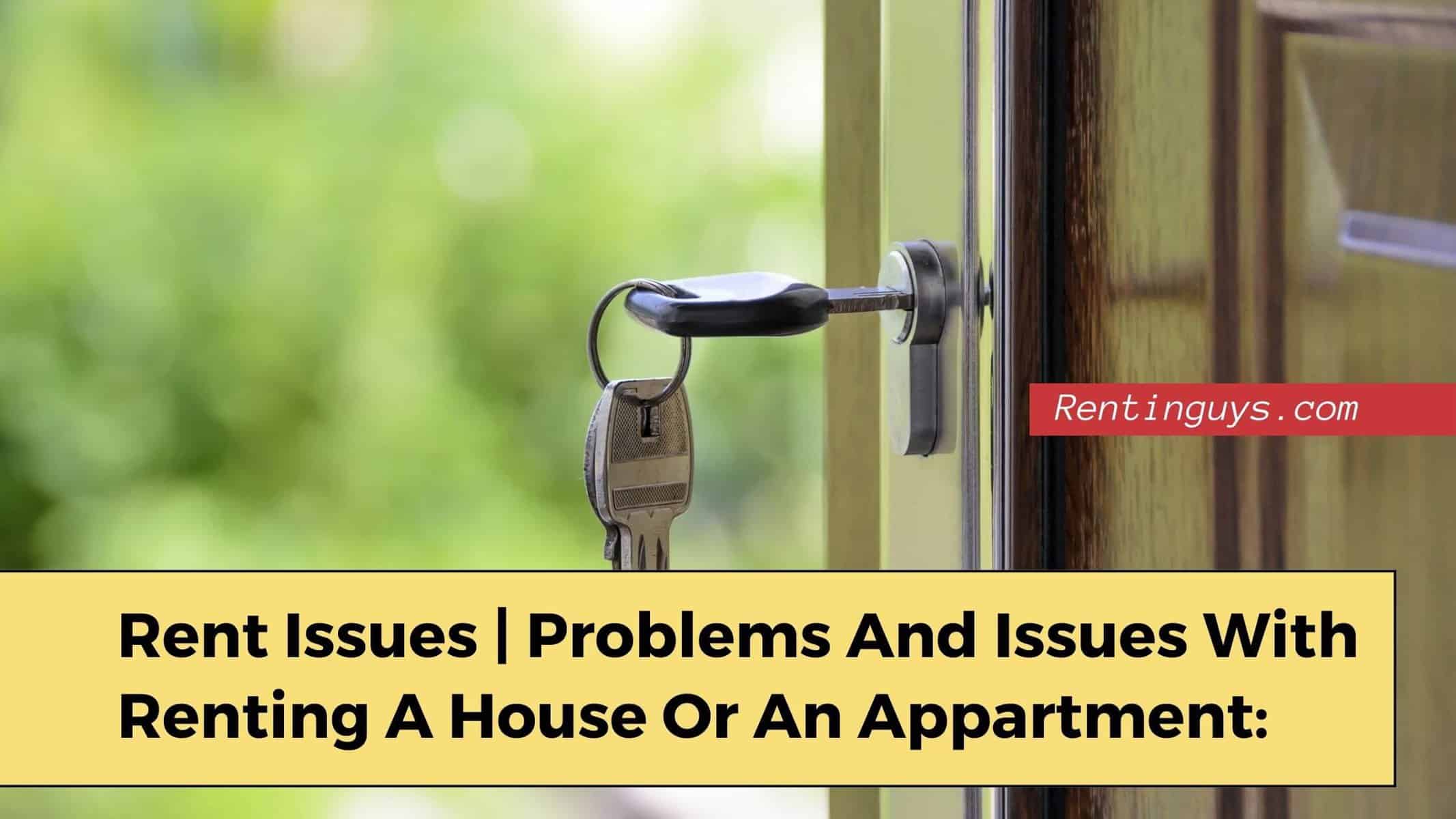The landlord barged into the property without notice.
Landlord not receiving calls for urgent repairs.
The landlord increased rent without prior notice.
These are some of the common pet peeves of tenants. There are many other issues that can lead to a dispute between the landlord and tenants.
Landlord-tenant disputes regarding rent, maintenance, and replacement of appliances are commonplace.
If you are renting out a house or an apartment for the first time, Here is an overview of problems that you may encounter when renting a house and how to overcome them.
Rent issues and problems with the landlord
Property unfit to live
The landlord has the duty to provide safe and hygienic accommodation to the tenants. Sometimes, the problems may not be visible until you move into the property.
Eg: faulty plumbing lines, irregular water supply, pests, etc.
You have to report the issue to the landlord as soon as you notice it. The landlord is bound by law to keep the property safe at all times even if it is not mentioned in the lease agreement.
However, the landlord is not responsible for repairs, until you notify them about it. You have to report the issue in the proper format as mentioned in the lease document and keep a record of the same.
To avoid legal issues, it is better to take a close look during the time of inspection and identify any issues that may affect your quality of life or endanger the lives of your family members.
Faulty safety equipment
The landlord must provide safety equipment such as smoke alarms, fire detectors, electrical safety units, etc., and ensure that they are in working condition at all times.
Repairing any faulty or non-working safety equipment is the responsibility of the landlord.
Before you sign the lease agreement, it is advisable to check all the safety equipment and ensure that they are working well.
If any equipment is damaged or is in despair, talk to the landlord and get it repaired or replaced before you move in to avoid disputes in the future.
Broken appliances
Damaged or broken appliances are one of the most common causes of disputes between landlords and tenants.
The landlord is responsible to replace or repair broken appliances unless the lease document mentions that it is the tenant’s responsibility or the damage is caused by your negligent behavior.
Inspect all the appliances closely and notice their condition. Click pictures of the appliances, if possible.
Ask the landlord to replace the items if anything is faulty or damaged. If an appliance breaks down because of your actions, get it repaired instead of complaining to the landlord.
Before signing the tenancy agreement, make sure that it contains a clause on who is responsible for the broken or damaged appliances.
Maintenance issues
The majority of landlord-tenant issues revolve around maintenance. The lease agreement must clearly specify the responsibilities of the landlord and tenant in the maintenance of the property.
Some tasks like maintaining the common areas, staircases, garden, etc. are the sole responsibility of the landlord.
If you encounter a maintenance issue, go through the lease document to identify who is responsible for it. If it is the landlord’s purview, speak to the landlord amicably.
File a written complaint and keep a record of it. If it falls under your purview, address the issue immediately.
Pests
Pests are a menace as they are unsightly and cause diseases. Nobody wants to live in a unit infested with cockroaches or bedbugs.
Apart from causing health problems, pests may damage your furniture and appliances.
Pests can come from anywhere. Sometimes, they enter the property while moving in your belongings and furniture.
To avoid a full-blown infestation, contact the landlord as soon as you notice signs of pests such as cockroaches, termites, rodents, etc.
Noisy neighbors
Noisy neighbors are a major concern for many tenants, especially if you live in a property with shared walls. You have the right to enjoy the property in peace. Noisy neighbors can spoil your experience and make life uncomfortable.
If your neighbors are really noisy, talk to them and resolve the issue. However, if they do not stop being noisy, report them to the landlord. The landlord may offer a resolution or offer you another unit if you are willing to move.
The landlord increasing rent without notice
The most common point of dispute between landlords and tenants is the rent amount. Some landlords raise the rent amount without any prior notice without consulting the tenant, which may prove to be a nasty surprise and derail your budget.
Landlords cannot raise the rent of a unit on their whim. They have to adhere to the terms in the lease document with regard to the amount and period of the rent increase. Moreover, they have to follow the rent control rules of your state.
Educate yourself on the federal and local housing laws and read the terms in the lease document closely to know your rights.
Security deposits
Security deposits are a crucial point of dispute between tenants and landlords. Landlords claim that tenants have unpaid rent or caused damage to the property to keep back a part of the security deposit and tenants claim that the landlord is making false claims to not return the deposit.
The state laws strictly govern the amount of security deposit, how it should be safeguarded by the landlord, and the allocation of funds.
However, the law varies from state to state. Your lease document also plays a crucial role in resolving disputes regarding security deposits.
Provide proper notice to the landlord before vacating the property, and ensure that all the furniture, appliances, and furnishings in the unit are in working condition, the property is clean and there are no unpaid rent or utilities so that the landlord does not have any claims on the security deposit.
Landlord trying to evict without notice
Getting evicted from a home without any reason is a shock for any tenant. Though landlords do not evict tenants frequently, you may encounter one sometimes.
The landlord reserves the right to evict tenants if they do not pay rent, damage the property, do not follow the terms of the tenancy agreement, partake in illegal activities, or cause nuisance to the neighbors and community.
However, the landlord cannot barge in and evict the tenants without an eviction notice.
Disputes between the landlord and tenant are commonplace. Most of these disputes can be resolved through clear communication with the landlord.
Pet issues
If you own pets, the pet policy of the landlord is a major concern. Keeping pets when the lease document clearly states that pets are not allowed can lead to legal action or eviction.
To avoid disputes, communicate clearly with the landlord. Do not try to keep your pets hidden as they will be discovered one day or the other. While searching for houses, choose one which allows pets.
You must remember that as a tenant, you have legal rights and responsibilities. It is advisable that you know the federal and local housing laws to recognize what are your rights as a tenant.
The lease document is also an important document that contains the terms, conditions, and provisions for various issues. It is important that you read the document before signing it.




